
It interfaces with a personal computer's (PC's) USB port via a hardware module, which includes a microprocessor-based electronic circuit capable of controlling up to eight appliances through the PC.
The program transmits specific instructions to the microprocessor-based interface card via the USB port. These instructions are pre-programmed and stored in the microprocessor's memory. Actions are executed through a designated relay number linked to an input/output (I/O) pin of the microprocessor and driver circuit.
At its core is the ATmega328P, a single-chip, 8-bit microcontroller housed in a 28-pin DIL package.
This microcontroller is both cost-effective and widely available in the Indian market. As it is the same IC used in Arduino Uno, the ATmega328P circuit can be easily replaced with an Arduino Uno board, if preferred.
The Arduino IDE, required to program the ATmega328P, is available for free download at https:// www.arduino.cc/en/software. A block diagram illustrating the program's functionality is shown in Fig. 1, while the complete bill of materials is provided in the table on this page.
This program involves using Visual Basic (VB) to communicate with an external hardware module through the USB port.
A basic understanding of VB programming and hardware knowledge for connecting and controlling the hardware module is necessary. A microcontroller or USB interface module acts as the intermediary between the PC and the appliances.
The appliances are connected via relays. A general-purpose PCB or breadboard, jumper wires, and a power supply for external appliances are used. Fig. 2 shows the USB-to-TTL serial converter used to program the microcontroller ATmega328P.
Circuit and working
هذه القصة مأخوذة من طبعة December 2024 من Electronics For You.
ابدأ النسخة التجريبية المجانية من Magzter GOLD لمدة 7 أيام للوصول إلى آلاف القصص المتميزة المنسقة وأكثر من 9,000 مجلة وصحيفة.
بالفعل مشترك ? تسجيل الدخول
هذه القصة مأخوذة من طبعة December 2024 من Electronics For You.
ابدأ النسخة التجريبية المجانية من Magzter GOLD لمدة 7 أيام للوصول إلى آلاف القصص المتميزة المنسقة وأكثر من 9,000 مجلة وصحيفة.
بالفعل مشترك? تسجيل الدخول
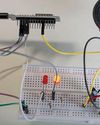
ESP32-Powered AUDIO-VISUAL SIREN
This sound alternator is designed to simulate the effects of a police siren, combining sound and light to create a dynamic audio-visual experience.
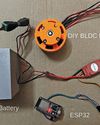
BLDC MOTOR With Web-Based Speed Control Using ESP32
Integrating wireless control into brushless direct current (BLDC) motor systems opens up exciting possibilities for applications such as remote-controlled cars, robots, and other innovative systems.
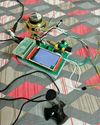
Pi Zero Portable BILINGUAL TRANSLATOR
This system is designed as a bilingual translator, leveraging the gTTS library to support multiple Indian languages, including English (en), Bengali (bn), Gujarati (gu), Hindi (hi), Kannada (kn), Malayalam (ml), Marathi (mr), Tamil (ta), Telugu (te), and Urdu (ur).
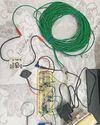
Op-Amp-Based VEHICLE THEFT DETECTOR
A simple, low-cost device can effectively alert homeowners or occupants if a parked vehicle is moved or tampered with.
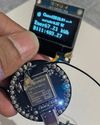
loT SMART METER With Dashboard
Energy meters in homes track electricity usage, enabling accurate billing by governments and providers.

Choose The Right Cloud Platform For Implementing loT PROTOCOLS
Working with loT protocols like MQTT, AMQP, and CoAP on cloud platforms is essential for developing scalable and efficient lol applications. The choice of the programming platform will depend on factors like project requirements, existing skills, and target devices. Leveraging the appropriate libraries and cloud services can enable seamless integration of lol devices with cloud-based applications.

Why TMR SENSORS Lead Next-Generation Design
TMR sensors are gaining traction in industries needing precision and power efficiency. What makes them the go-to choice for modern designs?
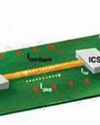
DESIGNING PCBs For EMI Management
Electromagnetic interference can derail your PCB’s performance. EMI management is not just a technical necessity but a hallmark of exceptional PCB design.

CUTTING COSTS, NOT CORNERS: Building Large Scale Applications With Open Source Software
Here are some strategies and best practices for leveraging open source to create enterprise-grade web and mobile applications without sacrificing quality or functionality.

"We Are One Of India's Very Few State Bodies To Manage The Entire Lifecycle Of The Electronics EcosystemFrom Approvals To Subsidies."
What is Gujarat State Electronics Mission GSEM), and how is it attracting major investments in electronics manufacturing, particularly semiconductor manufacturing, to Gujarat? To delve deeper, Electronics For You’s Nijhum Rudra spoke with Manish Gurwani, the head of GSEM. Here is what he revealed...